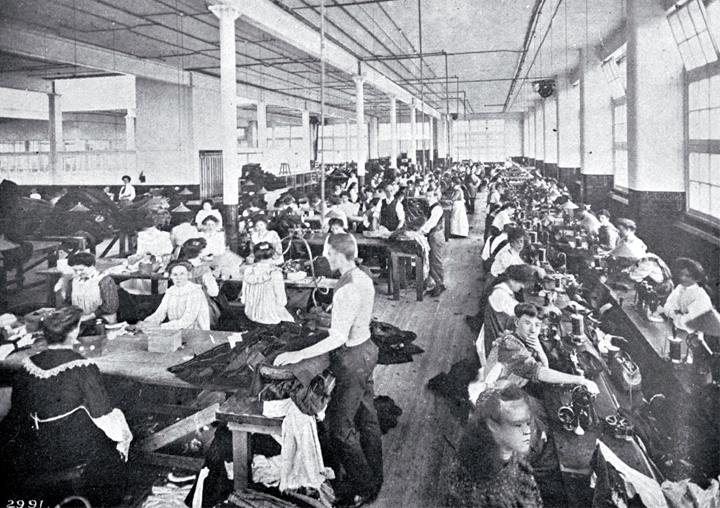F. Scott Fitzgerald
"And on Mondays eight servants, including an extra gardener, toiled all day with mops and scrubbing-brushes and hammers and garden-shears, repairing the ravages of the night before" (Fitzgerald, 39).
Nick's generalization about Gatsby's parties presents several incongruities in 20s society: the rich have a dream of building something but the poor end up building it and the decorum at high-class events is typical of lower-class debauchery.
Gatsby intends these parties to be displays of wealth in order to keep him relevant in upper society. In fact, Nick describes the parties as so constant that the reader wonders if Gatsby does anything but plan parties. This leads us to the first incongruity; Gatsy spends the majority of his time trying to prove his financial status which he spends very little effort to earn. Moreover, even though Gatsby seems to hold these parties to prove something to everyone about himself, he does very little during the parties. As seen in the above quote, the unknown butlers and servants carry out all of the preparations and give grandeur to the parties. At this point, most would think that I would point out that the incongruity is that the credit goes to Gatsby instead of the butlers; however, the incongruity is much deeper. Most of the guests don't even see Gatsby at the parties. This incongruity serves to support Fitzgerald's view that the society of the 20s was less of a society and more of a collection of egotistical usurpers.

Oh, Allie Brosh, why hast thou forsaken me?
Another point of incongruity in this passage is the behavior of the guests at Gatsby's parties. The vast majority of the guests at Gatsby's parties are extremely wealthy (granted, most of them could only attend because they knew someone who was invited (they didn't earn this party or their wealth, perhaps?)) As seen in The House of Mirth, parties hosted by the extremely wealthy tended (and still tend today) to be filled with classy and quiet entertainment. However, Gatsby's parties are filled with drunks and loud women. In fact, the parties might as well be held in the back hills of Kentucky. This incongruity between class and behavior reminds the reader that wealth is not necessarily a good indicator of class.









